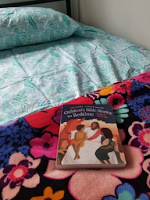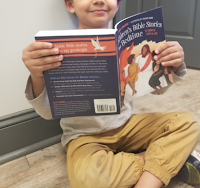Edie Melson's Blog, page 135
February 18, 2022
To Flourish as a Writer, Avoid the Trap of Pride

by Emme Gannon @GannonEmme
One thing that great novels consider is the search for self. Good writing brings us into story and, as we enter another’s world, we allow the protective shield around our hearts to peel back. What we see in the protagonist, we often begin to recognize in ourselves. Good storytelling does that. A prime example is Jane Austen’s delightful novel Pride and Prejudice.
The novel revolves around the importance of marrying for love instead of economic gain or social prestige, despite society’s pressure otherwise. Elizabeth Bennet, determined to only marry for love, suffers the repercussions of her hasty judgment of both Mr. Darcy and Mr. Wickham. Eventually she learns the difference between superficial goodness and actual goodness. Mr. Wickham, who she had deemed good turned out to be calculating and self-serving. Whereas, Mr. Darcy, his pride relinquished and heart exposed by his love for Elizabeth, proved to be kind, generous, and forgiving.
In the beginning of the novel, however, we see a different Mr. Darcy. His words and actions proclaim a high opinion of his own importance. We would agree with Elizabeth that his prideful demeanor would make poor husband material. Austen clearly shows us the potential for such a prideful match in the acceptance by Elizabeth’s friend Charlotte Lucas to the marriage proposal of the wretched and self-centered Mr. Collins, whose pride in himself is magnified throughout the novel.
Recognizing PrideWhile it is easy to recognize pride in story, this high opinion of ourselves can often creep into a writer’s psyche and not be discerned until it is well ingrained into our lives. Success has the power to do that—where we finally reach that pinnacle where we are the leader in our field, the sought after advisor, the recipient of a plethora of awards. While excellence and self-confidence should be the goal of every writer, believing the hype has the potential to shoot arrows at humility.
Those of us who have not reached that height of recognition are not exempt from the snare of pride. Pride manifests itself in surprising ways: concentration on self, difficulty in admitting mistakes, comparing ourselves to others, dominating conversation, attempting to outdo experiences that others relate, or lack of gratitude. Instead of being grateful for the gifts God has bestowed, we focus on our lack of abilities. This self-pity is also pride (1 Corinthians 12:14-25.)
The Part Anger Can Play in PrideAnger drives pride. Never satisfied with where God has placed us is a subconscious attempt to aspire to the position of God and not acknowledge our dependence on Him, preferring our will to His. Our self-glorification robs God of the glory due His name as well as the unique mission He has for each of us. I contend that pride is the most insidious of all the deadly sins, deceitfully luring us into what we perceive as the safety of self-sufficiency but, instead, thrusting us into a world where truth is what we make it to be. We thus become Eve in the garden choosing to please ourselves rather than live under the protection of God.
Our world reels with pride, not emphasizing personal responsibility but, instead, emphasizing self. Social media has the potential to lure us into the pride trap—checking how many likes or comments on our posts and being upset if our standard is not met, despite all our efforts.
The Power of HumilityThe opposite of pride is humility. Submission to the Lord and giver of life, who gave gifts to His children for His glory and our good. Some are called to write just for His pleasure. Others as leaders and teachers to nurture the gifts of others. Whatever He has called us to, let us write with humility to the praise and glory of His Name.
We were chosen by God to be born in such a time as this. A time of great persecution for those who believe and live by the truth of God’s Living Word. The eternal impact of our words explode when written from a humble heart. Whether our writing is for the world, or just a few.
TWEETABLETo Flourish as a Writer, Avoid the Trap of Pride thought from @GannonEmme on @EdieMelson (Click to Tweet)
 Emme Gannon is a wife, mother, and grandmother who loves to write stories that stir the heart. Her award-winning writing has appeared in Focus on the Family magazine, several anthologies, and numerous newsletters. She just completed her first novel.
Emme Gannon is a wife, mother, and grandmother who loves to write stories that stir the heart. Her award-winning writing has appeared in Focus on the Family magazine, several anthologies, and numerous newsletters. She just completed her first novel.
Published on February 18, 2022 22:00
February 17, 2022
Everyday Inspiration for Writers

by Crystal Bowman
People who are not writers often ask where I get my ideas for books, devotions, and blogs. I confess that I do not have one of those sci-fi imaginations that can take readers into places where no one has gone before. But I am observant. And when mishaps, disasters, or pleasant surprises enter my world, they often become fodder for my writing.
The Banana Bread DisasterI don’t like wasting food (or anything for that matter), so when three sad bananas were rotting on my kitchen counter, I found my recipe for banana bread, gathered the necessary ingredients, and blended them together. I poured the batter into a loaf pan and slid it into the oven. Thirty minutes later, I peeked through the oven’s window and did not see the rising loaf I was expecting to see. Instead, I saw a blob of banana paste in the loaf pan. I reread the recipe and realized I had forgotten one tiny ingredient—baking powder. Without baking powder the batter was useless.
As I scooped the banana paste down the disposal, a Bible passage came to my mind. In 1 Corinthians 13:1-3 (NIV) the Apostle Paul writes, “If I speak in the tongues of men or of angels, but do not have love, I am only a resounding gong or a clanging cymbal. If I have the gift of prophecy and can fathom all mysteries and all knowledge, and if I have a faith that can move mountains, but do not have love, I am nothing. If I give all I possess to the poor and give over my body to hardship that I may boast, but do not have love, I gain nothing.”
Applying the LessonJust like that missing teaspoon of baking powder made everything I did worthless, without the love of God in my life, my efforts at anything are also worthless. Love is the necessary ingredient in order for our lives to be purposeful and pleasing to God. As Paul explains in these verses, without love, we are nothing and we gain nothing. A few months later, I wrote a devotion called “The Missing Ingredient” where I made the connection between my banana bread mishap and 1 Corinthians 13:1-3. Eventually it ended up in a book of devotions for moms.
Ideas Are EverywhereAlmost everything I write has a story behind it because I get my ideas and inspiration from everyday life. A centipede crawling across my kitchen floor inspired a poem in one of my children’s books. A sweet comment from my grandson was added to one of my magazine stories. And when a grocery clerk charged me double for a cucumber, it became a humorous blog post.
Writers notice things that others miss. We see metaphors and parallels and have many ah-ha moments. We write because God has called us to write. We write to encourage, inspire, and entertain readers. And if something we write brings a reader closer to God, that gives it all a greater purpose.
A Few TipsIf you need ideas to inspire your writing, be intentional about observing the world around you. Watch what people do and listen to what they say. Take a nature walk and write down what you see, hear, and smell. Read your Bible, then share the wisdom and understanding the Holy Spirit gives you. And if you’re really desperate for an idea, make a loaf of banana bread and turn the experience into a devotion!
Join the conversation—where do you find inspiration for your writing?
TWEETABLEEveryday Inspiration for Writers from Crystal Bowman on @EdieMelson (Click to Tweet)
 Crystal Bowman is an award-winning, bestselling author of more than 100 books for children and four nonfiction books for women. She also writes lyrics for children’s piano music and is a monthly contributor to Clubhouse Jr. Magazine. She loves going to schools to teach kids about poetry. She also speaks at MOPS (Mothers of Preschoolers) groups and teaches workshops at writers’ conferences. When she is not writing or speaking, she enjoys going for walks, working out at the gym, and eating ice cream. She and her husband live in Michigan and have seven huggable grandkids.
Crystal Bowman is an award-winning, bestselling author of more than 100 books for children and four nonfiction books for women. She also writes lyrics for children’s piano music and is a monthly contributor to Clubhouse Jr. Magazine. She loves going to schools to teach kids about poetry. She also speaks at MOPS (Mothers of Preschoolers) groups and teaches workshops at writers’ conferences. When she is not writing or speaking, she enjoys going for walks, working out at the gym, and eating ice cream. She and her husband live in Michigan and have seven huggable grandkids. WWW.CRYSTALBOWMAN.COMWWW.FACEBOOK.COM/CRYSTAL.BOWMANWWW.FACEBOOK.COM/CRYSTALJBOWMANWWW.INSTAGRAM.COM/CRYSTALBOWMANAUTHOR
Featured Image: Photo by Brandy Kennedy on Unsplash
Published on February 17, 2022 22:00
February 16, 2022
Blogging Tips to Increase Website Traffic

by Susan U. Neal RN, MBA, MHS @SusanNealYoga
You’ve invested in a website and published a book. Now, how do you get people to visit your website? The following blogging tips are the answer. Many search engine optimization techniques can be performed through blogging to increase your website’s visitor rate. Last January, for example, my website (https://susanuneal.com/) had over 9000 website views because I consistently blogged weekly and used Pinterest pins at the bottom of each post to drive traffic to my website.
The Following Strategies Will Increase Your Website’s Views:
1. Create a theme for your blog by determining your blog’s 3–5 keywords that you would like to rank for on Google over time. Use these sites to choose keywords that have high search levels: Google Keyword Planner at https://ads.google.com/home/#!/ (free), UberSuggest at https://neilpatel.com/ubersuggest/ (3 free uses/day or paid), and Publisher Rocket (paid).
For instance, for the Christian Indie Publishing Association blog (https://christianpublishers.net/blog/), the primary keywords are self-publishing, how to self-publish a book, Christian book, Christian authors, book marketing, and indie publishing. Secondary keywords include Christian publishers, Christian writers, indie authors, and independent authors.
A second example is from the Healthy Living Series blog (https://susanuneal.com/healthy-living-blog). The primary keywords are low-sugar diet, low-carb diet, gluten-free, Candida, and food addiction. Secondary keywords include healthy diet, healthy lifestyle, and healthy eating.
2. Create blog guidelines and post weekly.Each article’s subject should apply to one of the blog’s keywords. Use one of the keyword search engine platforms listed in #1 to determine the best keyword for your specific article. For example, blogging tips is the keyword for the post you are reading. Include the keyword in the title and first sentence. Plus, repeat the keyword a couple more times. The article should contain 90 percent new content. Use Grammarly or ProWritingAid to check for plagiarism. Google penalizes sites with repeated information.The length should range from 1000 to 2000 words.3. Rewrite the blog’s meta description, if needed, and include keywords. A post’s meta description pops up when someone searches on Google. The first two sentences of the article become the meta description. Therefore, those sentences should tell you what the blog is about and how it will benefit the reader. If the first two sentences do not clearly define what the article is about, then either rewrite the first two sentences or write a better description and insert it in the meta description area when uploading your post on your website.
4. Create an engaging blog title. Solve your customer’s problem in your title. Here are some examples: How to; 5 Ways to; Avoid these Mistakes; Client Success Story; etc. Use the Advanced Marketing Institute’s headline analyzer at https://aminstitute.com/headline/. This free tool analyzes your headline to see how someone might emotionally react to it. Reaching readers in a deep emotional way is key to successful copywriting. Try to get a score of 40 or more. Titles should be between 40 and 70 characters long. Use https://convertcase.net/ to determine your title’s character length. Make sure your title includes your keyword.
5. Add an attractive photo at the top of the post or under the first paragraph. To find royalty-free photos, use Pixabay.com, Unsplash.com, or Canva.com. Do not upload large photos to your website because it will slow your site’s speed. Resize the photos so they have a maximum width of 1000px. Use Pixlr.com to optimize your photo size. The WordPress Plugin called Smush can decrease your photo size. Google bots can’t read photos, so title your photo with your blog’s keyword so the bots can read it.
6. Open any links in your blog in a new window and make some links a “nofollow” link unless it is to a website you want to promote or give credit to (guest blogger, your own blogs—with these use “dofollow” links).
To apply these two techniques, when uploading a post on a WordPress website, click on a link and a dropdown menu appears. Click on edit and link options. At this point, a box appears, and you can click on open link in a new tab and add nofollow. You want some of your links to be nofollow links, so Google bots think that your site is legitimate and not spamming dofollow links.
7. Use Pinterest pins to promote your blogs. Both of my blogs, Healthy Living Series and Christian Indie Publishing, have significantly benefited from using Pinterest. Writers and people looking for healthy living tips and recipes use Pinterest. So my audience is on Pinterest. Is yours? My website’s Google Analytics showed me that Pinterest is the #1 referral to both of my blogs.
If you want to learn how to use Pinterest, check out the course, Grow Your Pinterest: Optimize Your Pinterest Account and Drive Traffic to Your Website. This course includes gorgeous Canva templates already created, so you can repurpose for your content. If you want to hire my Pinterest social media manager, check out her services at https://thebeautyoftraveling.com/services/. She increased my monthly Pinterest views from 6200 to 380,000 in three months.
Keeping up a weekly blog requires a significant amount of work. Therefore, I ask other writers for guest submissions. I’ve done this for the Healthy Living Series and Christian Indie Publishing Association blogs, and it worked well. I send an email with dates and the blog guidelines and asked individuals and professional group members (Christian Author Network, Advanced Writer & Speaker Association) to sign up. These guest spots can fill the unplanned weeks in your annual posting plan. If you apply these strategies, your website views will soar. For more blogging tips, take my blogging course, Drive Traffic to Your Website through Blogging, at CIPA.Podia.com.
TWEETABLEBlogging Tips to Increase Website Traffic from @SusanNealYoga on @EdieMelson (Click to Tweet)
 Susan U. Neal, RN, MBA, MHS: Susan’s mission is to improve the health of the body of Christ. She has her RN and MBA degrees, as well as a master’s in health science. She is a CERTIFIED HEALTH AND WELLNESS COACHwith the American Association of Christian Counselors. She published five books, the Selah award winner 7 STEPS TO GET OFF SUGAR AND CARBOHYDRATES, CHRISTIAN STUDY GUIDE FOR 7 STEPS TO GET OFF SUGAR AND CARBOHYDRATES, HEALTHY LIVING JOURNAL, SCRIPTURE YOGAa #1 Amazon best-selling yoga book, and YOGA FOR BEGINNERSwhich ranked #3. She published two sets of Christian Yoga Card Decks and two Christian Yoga DVDs that are available at CHRISTINAYOGA.COM. Her digital product HOW TO PREVENT, IMPROVE, AND REVERSE ALZHEIMER’S AND DEMENTIAis a great resource. To learn more about Susan visit her website SUSANUNEAL.COM You can also connect with Susan on FACEBOOK, TWITTER, and INSTAGRAM.
Susan U. Neal, RN, MBA, MHS: Susan’s mission is to improve the health of the body of Christ. She has her RN and MBA degrees, as well as a master’s in health science. She is a CERTIFIED HEALTH AND WELLNESS COACHwith the American Association of Christian Counselors. She published five books, the Selah award winner 7 STEPS TO GET OFF SUGAR AND CARBOHYDRATES, CHRISTIAN STUDY GUIDE FOR 7 STEPS TO GET OFF SUGAR AND CARBOHYDRATES, HEALTHY LIVING JOURNAL, SCRIPTURE YOGAa #1 Amazon best-selling yoga book, and YOGA FOR BEGINNERSwhich ranked #3. She published two sets of Christian Yoga Card Decks and two Christian Yoga DVDs that are available at CHRISTINAYOGA.COM. Her digital product HOW TO PREVENT, IMPROVE, AND REVERSE ALZHEIMER’S AND DEMENTIAis a great resource. To learn more about Susan visit her website SUSANUNEAL.COM You can also connect with Susan on FACEBOOK, TWITTER, and INSTAGRAM.Featured Image Photo by Fikret tozak on Unsplash
Published on February 16, 2022 22:00
February 15, 2022
How to Write to Inspire, Not Condemn—Part 1

by Katy Kauffman @KatyKauffman28
Sandpaper on my soul. As the sermon progressed, scratch … scratch … scratch. The words of the well-meaning pastor scratched against my heart. His condemning tone and harsh words caught me off guard. I wondered if this was a normal practice in the church I was visiting that day.
I know that the truth needs to be shared, but how should we share it? How does it make you feel when a stranger launches accusatory words your way? We can think about whether what they said applies to us. Regardless, we may wonder how that person could say such things without knowing us.
The same goes for writers and readers. It matters how we share the truth. What does God say about our actions?
One of my favorite Bible passages combines the sharpness that we need to stay alert in a world opposed to God’s ways, and the love that we need to operate in this world.
“Watch, stand fast in the faith, be brave, be strong.Let all that you do be done with love.”(1 Corinthians 16:13-14 NKJV)
Watch—know what’s going on in your community, your country, and the world. Stand fast in the faith—don’t give in to lies. Be brave—be courageous for God. Be strong—know what’s good and do it.
Because we care about people, we want to share the truth with them. Because God’s nature is made out of love, our writing can be guided by how love would turn a phrase and share a message.
How Can We Inspire without Condemning?
When we mirror God’s heart for His flock, we can write from a heart of love. Here are three ways we can inspire without having a condemning tone.
1. We can choose encouragement, not accusation.
If we can address problems with an encouraging tone, we are more likely to keep the reader with us. They will want to stick with it—to keep reading our article or book because we come to them with the heart of a friend. An encouraging voice can build a bridge into the reader’s heart, so our words are received with grace and openness. On the other hand, an accusatory tone can turn them off cold. Assuming our readers have certain problems can come across as condemning, and they may stop reading.
2. We can use words like “may” or “can” to give the reader some breathing room.
Our word choice can show we respect our readers. Use these kinds of phrases to begin a sentence that could otherwise sound condemning, and replace the parenthetical phrase with the struggle or consequences you’re addressing.“This can happen if we (persistent in a negative habit).”“We may have a tendency to (insist on our own way if we haven’t seen God working in our lives recently).”“We may find ourselves experiencing (this consequence for this sin if we don’t return to God’s path sooner than later).” Also, using “we” instead of “you” builds comradery with our readers and precludes an “I know you’re doing what’s wrong” tone in our writing.
3. We can show respect for our readers by including the “how” or “why” with the “what.”
“Do this because you should!” Did your mother ever say that to you? I have a mom who understood my need to know why, and she told me.
Show your readers what to do but also include why it’s beneficial and healthy. Follow up with how to accomplish it.
Which sentence would you prefer reading?“We need to spend time with God every day.” Okay, I know that. But why?
“When we spend time with God every day, we gain strength for that day’s challenges, direction for our decisions, and closeness to Him that refreshes our hearts.” Crafting encouragement rather than condemnation involves taking a look at God’s heart of compassion and learning from Him how to write the truth in love. Which of these three tips do you try to practice, and can you add any more? Join the conversation!
TWEETABLEHow to Write to Inspire, Not Condemn - Part 2 from @KatyKauffman28 on @EdieMelson (Click to Tweet)
 Katy Kauffman is an award-winning author, an editor of REFRESH BIBLE STUDY MAGAZINE, and a co-founder of LIGHTHOUSE BIBLE STUDIES. She loves connecting with writers and working alongside them in compilations, such as Feed Your Soul with the Word of God, Collection 1 which is a 2020 Selah Awards finalist.
Katy Kauffman is an award-winning author, an editor of REFRESH BIBLE STUDY MAGAZINE, and a co-founder of LIGHTHOUSE BIBLE STUDIES. She loves connecting with writers and working alongside them in compilations, such as Feed Your Soul with the Word of God, Collection 1 which is a 2020 Selah Awards finalist.In addition to online magazines, Katy’s writing can be found at CBN.COM, thoughts-about-God.com, and three blogs on writing. She loves to spend time with family and friends, talk about art and crafts in her group MY ARTSY TRIBE, and tend the garden in the morning sun. She makes her home in a cozy suburb of Atlanta, Georgia. Connect with her at her blog, WINNING THE VICTORY, and on FACEBOOK and TWITTER.
Published on February 15, 2022 22:00
Writers, Don't Interrupt the Divine

by Tracy Smoak
“The entire world seems to be ‘held back,’” Tina Yeager wrote in “Called and Held for New Things” published January 3 on Inkspirations Online. Her phrase connected with me as suspense seems to hang in the air. No one quite knows what to expect in 2022.
A look back in history may comfort. Peter’s experience with Jesus’ transfiguration offers clues how God interrupts the natural to reveal the divine. Jesus takes Peter, James, and John to a high mountain where he is transfigured (Matthew 17). He becomes as radiant as the sun and starts talking with Moses and Elijah.
This certainly wasn’t business as usual, and Peter wanted to participate. He offered to build three shelters. I have to giggle a bit. Why do radiant beings hundreds of years old need puny manmade huts on a remote peak? Furthermore, how did Peter know who the prophets were since there were no photographs. But I get that Peter wanted to be part of what God was doing.
Me too. It’s just that like Peter, I sometimes get so busy wanting to jump in and establish some sort of ministry, that I miss the larger point of what God is doing.
God stops Peter and says about Jesus, “This is my Son, whom I love; with him I am well pleased. Listen to him!” (Matthew 17:5 NIV).
Am I listening in this time of waiting? Am I quiet in my spirit so that God can reveal his plans?
Jesus touched the three disciples who were facedown in fear. “Get up. Don’t be afraid” (Matthew 17:7 NIV).
Neither should we be anxious about delays. God will deliver. He is amassing resources and equipping trained armies to bring light and hope. Just as Elijah served as a faithful messenger of truth around 840 B.C., so can we. Tarrying a bit to ensure the words are just right is prudent.
Timing with God takes on a new perspective. Some six centuries prior to Elijah’s work, Moses also met God in solitary places. As Moses conversed with the Lord, his face became radiant (Exodus 34). Because he relied on the Lord alone for teaching, Moses was empowered to bring instruction to the entire community. The setback of the first shattered stone commandments didn’t defeat God’s plan.
Moses overcame the episode of the broken tablets and regrouped to organize building the sanctuary. “All who are skilled among you are to come and make everything the Lord has commanded….” (Exodus 35:10 NIV). Many articles were needed and each required a unique craftsperson. Items ranged from constructing poles and coverings for the tent to weaving garments and forging bronze basins.
We each have a role to enhance the sanctuary. Let our prayer in this season of equipping be like that Moses uttered for the artisans of Israel: “May we be filled with the Spirit of God, with wisdom, with understanding, with knowledge and with all kinds of skills…” (Exodus 35:31 NIV).
We can trust God will use this period to develop our talents and enable us to carry out the work constructing sanctuary for those who are hurt and lost.
TWEETABLEWriters, Don't Interrupt the Divine, insight from Tracy Smoak on @EdieMelson (Click to Tweet)
 Tracy Smoak is a freelance writer and photographer. She hosts blogs where to find hope at www.tracysmoak.com. Her bachelor’s degree is in Communication for Business and her master’s is in Education. She is a licensed English teacher. Her devotional book with original photographs of tranquil water scenes in Lake County, Florida is scheduled for release in August 2022. She also has a contract for a book about encouragement with Bold Vision set for 2023. Her nonfiction, Break the Cycle: Healing from an Abusive Relationship, made the 2014 national list of The United Methodist Women’s Reading Program.
Tracy Smoak is a freelance writer and photographer. She hosts blogs where to find hope at www.tracysmoak.com. Her bachelor’s degree is in Communication for Business and her master’s is in Education. She is a licensed English teacher. Her devotional book with original photographs of tranquil water scenes in Lake County, Florida is scheduled for release in August 2022. She also has a contract for a book about encouragement with Bold Vision set for 2023. Her nonfiction, Break the Cycle: Healing from an Abusive Relationship, made the 2014 national list of The United Methodist Women’s Reading Program.
Published on February 15, 2022 05:44
February 13, 2022
The Power of Gathering with Other Creatives
Edie here. I'm super excited to remind you about feeding your creative soul and share a new event that does just that! There are great tips and insight from Gari in the blog post below, but I also hope you'll share the info about the
Rise Up Gathering
!

The Power of Gathering with Other Creativesby Gari Meacham @GariMeacham
Walk into any trendy coffee shop in any city and you’ll see the same site—people locked on their screens, blazing through agendas…alone. After years of isolation and redefining our work habits, it’s time to gather. It’s time for dreams and vision to come alive. If you’ve ever wanted to write a book, pen a song, speak a God-given message, start a show, or create a film—a live gathering with others who also long to create inspiring content is for you.
The power to see lives transformed is in the sway of story.
But learning how to harness our stories is the challenge. It’s not that we don’t have the ideas and the dream to change the world through what we create…we just don’t know how.
Here’s what you must know about taking your desire to create from start to finish . . .
and how locking arms with others can help you get it done.There’s something about gathering. Truthfully—it’s been a while and we’re rusty—but nothing takes the place of sitting next to like-minded people set on like-minded outcomes. As a creator, we learn more about the craft when we sit with other creators and learn from their process and ideas. More than any other time in history, God is using multi-genres to reach people with his truth. It’s no longer a one-track journey—it’s a multi-journey path to understanding. People read books and blogs, they listen to podcasts and binge watch shows. As writers, speakers podcast and film leaders, we need to be at those watering holes. We need to be where the people are getting fed…and provide them with the content. We must learn from the mentors who’ve walked the paths we long to walk and learn from their wisdom and mistakes. There are willing experts in all genres to encourage and equip creators. It’s been said “If you want to go fast—go alone. If you want to go far—go together.”It takes courage to put your stories and ideas in front of others, but this is what deepens our faith. Faith was never meant to be hoarded—it’s meant to be given away. When you take your faith and harness it towards writing, speaking, podcasting, film, song, or leading others; you’ve effectively given your faith away. This is the “GO” principal Jesus left as our mandate. Making disciples requires tools. Some of the tools are honing your craft by learning more structure (the “how to” lessons of writing, or the tips to getting published and noticed) while other tools focus on the personal relationships built in the process of seeing a dream go from your heart to a page, a stage, or a screen. Gathering with others committed to the same desire helps you ready your tools for your personal “GO!” Most creators live in the “start and stop” lane of producing. You start with full intent: (writing several pages a day, speaking to people, and making contacts, buying the equipment you need to get started) but within a few months these things are gathering dust in the back of a closet. Why? Perhaps it’s because there’s no plan to get you to the finish line. Often, we need to be taught not only how to start—but how to finish well. Creating is a holy offering. It’s following in the footsteps of God Himself as we finish things, and then reflect “It is good…” It’s not enough to keep beginning and stopping. One writer says, “Starting is fine…but finishing is divine.”Creating content that changes the world is no small feat—that’s why we’re hosting a collection of authors, speakers, leaders, songwriters, and filmmakers set on one goal—to help you succeed at what God invites you to share with the world Your expression of hope and influence.
The Rise Up Gathering is set against the backdrop of the city of Houston—a hub for some of the finest creators in the world. We will inspire and equip those called to write, speak, and lead through passion, creativity, and communication. Meet experts in writing fiction, nonfiction, children’s books, magazines and professional speaker coaches. Pitch your idea to a filmmaker. Hear how to start a podcast or take yours to the next level. Work with Grammy and Dove winning songwriters to polish your song idea – and get a professional critique. If you’re asking, “How do I take my passion and faith, and make it count on a public platform?” the Rise Up Gathering is for you.
Get your seat now:
Rise Up Gathering April 1-2 (bonus day March 31)See the premiere experts and gathering details at www.riseupgathering.com
TWEETABLEThe Power of Gathering with Other Creatives - insight from @GariMeacham on @EdieMelson (Click to Tweet)

The Power of Gathering with Other Creativesby Gari Meacham @GariMeacham
Walk into any trendy coffee shop in any city and you’ll see the same site—people locked on their screens, blazing through agendas…alone. After years of isolation and redefining our work habits, it’s time to gather. It’s time for dreams and vision to come alive. If you’ve ever wanted to write a book, pen a song, speak a God-given message, start a show, or create a film—a live gathering with others who also long to create inspiring content is for you.
The power to see lives transformed is in the sway of story.
But learning how to harness our stories is the challenge. It’s not that we don’t have the ideas and the dream to change the world through what we create…we just don’t know how.
Here’s what you must know about taking your desire to create from start to finish . . .
and how locking arms with others can help you get it done.There’s something about gathering. Truthfully—it’s been a while and we’re rusty—but nothing takes the place of sitting next to like-minded people set on like-minded outcomes. As a creator, we learn more about the craft when we sit with other creators and learn from their process and ideas. More than any other time in history, God is using multi-genres to reach people with his truth. It’s no longer a one-track journey—it’s a multi-journey path to understanding. People read books and blogs, they listen to podcasts and binge watch shows. As writers, speakers podcast and film leaders, we need to be at those watering holes. We need to be where the people are getting fed…and provide them with the content. We must learn from the mentors who’ve walked the paths we long to walk and learn from their wisdom and mistakes. There are willing experts in all genres to encourage and equip creators. It’s been said “If you want to go fast—go alone. If you want to go far—go together.”It takes courage to put your stories and ideas in front of others, but this is what deepens our faith. Faith was never meant to be hoarded—it’s meant to be given away. When you take your faith and harness it towards writing, speaking, podcasting, film, song, or leading others; you’ve effectively given your faith away. This is the “GO” principal Jesus left as our mandate. Making disciples requires tools. Some of the tools are honing your craft by learning more structure (the “how to” lessons of writing, or the tips to getting published and noticed) while other tools focus on the personal relationships built in the process of seeing a dream go from your heart to a page, a stage, or a screen. Gathering with others committed to the same desire helps you ready your tools for your personal “GO!” Most creators live in the “start and stop” lane of producing. You start with full intent: (writing several pages a day, speaking to people, and making contacts, buying the equipment you need to get started) but within a few months these things are gathering dust in the back of a closet. Why? Perhaps it’s because there’s no plan to get you to the finish line. Often, we need to be taught not only how to start—but how to finish well. Creating is a holy offering. It’s following in the footsteps of God Himself as we finish things, and then reflect “It is good…” It’s not enough to keep beginning and stopping. One writer says, “Starting is fine…but finishing is divine.”Creating content that changes the world is no small feat—that’s why we’re hosting a collection of authors, speakers, leaders, songwriters, and filmmakers set on one goal—to help you succeed at what God invites you to share with the world Your expression of hope and influence.
The Rise Up Gathering is set against the backdrop of the city of Houston—a hub for some of the finest creators in the world. We will inspire and equip those called to write, speak, and lead through passion, creativity, and communication. Meet experts in writing fiction, nonfiction, children’s books, magazines and professional speaker coaches. Pitch your idea to a filmmaker. Hear how to start a podcast or take yours to the next level. Work with Grammy and Dove winning songwriters to polish your song idea – and get a professional critique. If you’re asking, “How do I take my passion and faith, and make it count on a public platform?” the Rise Up Gathering is for you.
Get your seat now:
Rise Up Gathering April 1-2 (bonus day March 31)See the premiere experts and gathering details at www.riseupgathering.com
TWEETABLEThe Power of Gathering with Other Creatives - insight from @GariMeacham on @EdieMelson (Click to Tweet)
Published on February 13, 2022 15:17
February 12, 2022
Writers, Armor Up

by Martin Wiles @LinesFromGod
At every game, he armored up.
Our son and daughter-in-law’s middle child loves T-ball. When things changed where my wife and I had more free time in the evenings, we planned to attend his final few games of the season. We had seen pictures of him, but nothing suffices for in-person observations.
We eased into the parking lot and waited for our son and his family to arrive. When they did, our son opened the door and let our grandson out. Sure enough, he looked just as the pictures had portrayed: white pants, a blue team shirt, cleats, and a backpack full of accessories.
But we didn’t see all his armor until he batted. He marched to the plate in full array. Added to what we’d already viewed were batting gloves and a batting helmet. The gloves helped him grip the bat, and the helmet would keep wildly pitched balls from hitting his head. These he donned until he made it around all the bases.
When his team played defense, his armor changed a bit. The gloves came off and so did the helmet. In their place, he slipped on a glove.
Although a pretty good ballplayer, our grandson struggles with focus. And one of his lapses cost him. As he played in the dirt, not paying attention to the batter, the hitter slammed a ground ball our grandson’s way. Our grandson happened to look up just in time to see the ball, but not in time to keep it from barreling into his eye. He whimpered a little but shook it off and went back to playing. After the game, he proudly showed us his shiner.
Paul knew a little about armoring up too—and why he needed to.
He had a string of enemies who falsely accused him and even tried to kill him for doing what God had instructed. He also knew believers would need the same armor. That’s why he said, “Put on all of God’s armor so that you will be able to stand firm against all strategies of the devil” (Ephesians 6:11 NLT).
A belt of truth, a helmet of salvation, a sword of the Spirit, a shield of faith, a breastplate of righteousness, and feet shod with the gospel of peace. Not anything that would help us in a ball game but pieces a Roman soldier needed for protection. And pieces we need in life, the writing life included.
Leaving off any piece of our spiritual armor makes us vulnerable to attacks from our spiritual enemy as an open spot made our grandson vulnerable. And sometimes we meet the enemy, and it is us. Although God provides the armor, we must suit up . . . daily.
Not all temptations are sinful. Some merely lead us to unwise decisions or away from God’s path. As writers, we have our own laundry list of temptations: to write a nasty response to the editor who rejected our devotion, article, or manuscript; to give up after a few rejections (or even one); to remain in our comfort zone; to get lazy in our training; to hurry through a project and give it less than our best; to skip out on rest and exercise; to think we can do this thing calling writing alone; or to forget to pray over our assignments.
God promises no temptation—sinful or not—will overtake us if we depend on his help, but his help comes when we help ourselves by armoring up. Temptations have many manifestations and sneak up on us if we’re not careful. Staying armored up keeps us safe. And when we protect ourselves, we also protect others, since almost every temptation we succumb to has a domino effect to some degree. An angry email to an editor may ruin a future opportunity. And laziness might keep us from writing what that one person needs to read.
So, armor up. You’ll be glad you did, God will be glad you did, and those who read your work will be glad you did.
TWEETABLEWriters, Armor Up! Insight & Encouragement from Martin Wiles, @LinesFromGod on @EdieMelson (Click to Tweet)
 Martin Wiles is the founder of Love Lines from God (www.lovelinesfromgod.com) and serves as Managing Editor for Christian Devotions, Senior Editor for Inspire a Fire, and Proof Editor for Courier Publishing. He has authored six books and has been published in numerous publications. His most recent book, DON'T JUST LIVE...REALLY LIVE, debuted in October of 2021. He is a freelance editor, English teacher, author, and pastor.
Martin Wiles is the founder of Love Lines from God (www.lovelinesfromgod.com) and serves as Managing Editor for Christian Devotions, Senior Editor for Inspire a Fire, and Proof Editor for Courier Publishing. He has authored six books and has been published in numerous publications. His most recent book, DON'T JUST LIVE...REALLY LIVE, debuted in October of 2021. He is a freelance editor, English teacher, author, and pastor.Featured Image: Photo by Nicole Green on Unsplash
Published on February 12, 2022 22:00
February 11, 2022
Why Choose Someone Else's Writing Success Over Your Own?

by Beth K. Vogt @BethVogt
Other writers so often inspire me, but right now I’m inspired by the different Olympians competing in the 2022 Winter Games.
Last week, the story of how U.S. speed skater Erin Jackson almost missed the Olympics captured my attention.
Jackson is the top-ranked speed skater in the world in the 500-meter race. However, she slipped during the Olympic trials last January, costing her one of the two spots on the U.S. team.
But then … Brittany Bowe, her teammate who’d won the event, gave Erin her spot.
An amazing display of sportsmanship, yes?
Bowe, who earned the right to compete in the women’s 500-meter speed skate at the 2022 Winter Games, stepped back so Erin Jackson could compete in her place.
Why?
Because Bowe believed in her teammate. Bowe believed in her friend. “[Erin] is ranked number one in the world and no one is more deserving than her to get an opportunity to bring Team USA home a medal,” Bowe told NBC.
What an amazing act of selflessness.
Just like sports, the world of publishing overflows with opportunities to compete with others. Whether you’re pre-published or published, there are all sorts of chances to compete with both casual acquaintances and close friends for contracts. Speaking engagements. Awards.
Given the chance—after winning the chance to step into the limelight—would you bow out and instead offer your opportunity to someone else?
Just asking the question.
Here’s another question: Do you celebrate other writers’ wins even when you’re still waiting on a contract? Even when you don’t win a longed-for award? Even when you sign up to attend a workshop when you feel qualified to teach it?
Yes, each one of us is pursuing our writing dream. But let’s open our eyes and recognize that all around us are other writers pursuing the dreams they cherish too. The dreams they pray over. The dreams they strive for day after day.
Maybe, just maybe, there will come a time when you’re called to come alongside another writer and help them … or even cheer them on as they move ahead of you.
THE REST OF THE STORY: Speed skater Brittany Bowe went on to earn a spot on the U.S. speed skating team in two other races. Of course, she didn’t know about that when she gave up her spot to Erin Jackson. But that’s a beautiful end to the story, isn’t it?
TWEETABLEWhy Choose Someone Else's Writing Success Over Your Own? insight from @BethVogt on @EdieMelson (Click to Tweet)
 Beth K. Vogt believes God’s best often waits behind the doors marked “Never.” Having authored nine contemporary romance novels and novellas, The Best We’ve Been, the final book in Beth’s Thatcher Sisters Series with Tyndale House Publishers, releasers May 2020. Other books in the women’s fiction series include Things I Never Told You, which won the 2019 AWSA Award for Contemporary Novel of the Year, and Moments We Forget. Beth is a 2016 Christy Award winner, a 2016 ACFW Carol Award winner, and a 2015 RITA® finalist. An established magazine writer and former editor of the leadership magazine for MOPS International, Beth blogs for Learn How to Write a Novel and The Write Conversation and also enjoys speaking to writers group and mentoring other writers. Visit Beth at bethvogt.com.
Beth K. Vogt believes God’s best often waits behind the doors marked “Never.” Having authored nine contemporary romance novels and novellas, The Best We’ve Been, the final book in Beth’s Thatcher Sisters Series with Tyndale House Publishers, releasers May 2020. Other books in the women’s fiction series include Things I Never Told You, which won the 2019 AWSA Award for Contemporary Novel of the Year, and Moments We Forget. Beth is a 2016 Christy Award winner, a 2016 ACFW Carol Award winner, and a 2015 RITA® finalist. An established magazine writer and former editor of the leadership magazine for MOPS International, Beth blogs for Learn How to Write a Novel and The Write Conversation and also enjoys speaking to writers group and mentoring other writers. Visit Beth at bethvogt.com.
Published on February 11, 2022 22:00
February 10, 2022
Beware 5 Things Replacing God’s Direction in Your Writing

by Joshua J. Masters @JoshuaJMasters
You sit at your keyboard gently tapping the keys, not hard enough to bring letters or words to your digital page, but just enough for the rhythmic click, click, click to break the awkward silence of your uncertain direction.
For Christian writers, feeling directionless is a more humbling experience than simple writer’s block because there’s an overwhelming sense you’re disconnected from God in the purpose He’s given you.
But if God has called you to write for His glory, He undoubtably has a path and direction for your writing. So, what prevents us from hearing His voice?
My wife and I were on a newly constructed road on our way to visit friends in Georgia, and I wasn’t sure the GPS on my phone was right. So, I decided we’d also use the Garmin GPS we had in the car.
Do you know what happened? They gave us two completely different sets of directions, which meant we had no idea where to go. Why? Because it’s impossible to follow two separate paths at the same time.
Is it possible you can’t clearly hear God’s direction for your writing because you’re already following directions you’ve received from somewhere else?
Jesus said: “I am the way, the truth, and the life. No one can come to the Father except through me” (John 14:6 NLT).
One way.
One truth.
One life.
Jesus is the only way, but we often refuse His direction and resist submitting to His authority. We sacrifice the plan God has for our purpose in life by letting other things rule over us.
We take our direction from idols, even as we pray for His guidance.
Here are five things you may use to replace Christ’s direction in your writing life:
1. YOUR SUCCESS
Does your direction and security come from publishing contracts and awards?
One of the most accepted idols in our society is self-importance and success. The great danger of the writing industry, even the Christian writing industry, is finding your value in the next sales report or accepted article rather than how Christ sees you.
When success as a writer becomes more important than being connected to God through the writing, it becomes an idol, and we stop listening for God’s direction. Instead, we try to take shortcuts to success and follow quick online formulas rather than abiding with Christ in the gift He’s given us.
Yes, we should work to develop our skills and build relationships that help hone those skills. But we must not allow outcomes to become our identity and purpose. It’s only when we dedicate our writing to His glory rather than our own that we hear His voice.
2. YOUR TIME
That’s the first question. Do you call it your time, or do you view it as time God has allotted you?
The number one complaint I hear from other writers is that they don’t have enough time to write. Well, there are countless articles on ways to find that time, but in sensing God’s direction, it’s less about the technique and more about the perspective.
You can easily take your direction from a calendar. That happens a lot in our culture. Is your life built on your own to-do list and scheduled events? Does your service reflect a life built on Christ? Do you go to church early—with a heart prepared for worship, or do you stroll in sometime after the announcements? Is Christ’s time with you the priority in your life or do you give Him your left-over time?
Your writing time can be an act of worship or a path to our first idol, success. When we view our hours at the keyboard as His time to speak to us through our writing rather than our time to meet a goal, we sense His direction and pleasure with each sentence.
That naturally leads us to the next distraction on our list.
3. YOUR ENTERTAINMENT
Does football, movies, television, your smartphone, or books (Yes, even books) take up a bigger place in your life than your relationship with Jesus? Is your worldview and direction fashioned by the time you spend with Christ or the time you spend with your favorite form of entertainment?
We’re all shaped and influenced by our environment. If you spend 5 minutes reading Scripture followed by 5 hours watching Emily in Paris, which do you think has a greater impact on your thinking and writing?
We’re so adept at justifying the unhealthy leisure time we consume (Leisure is not the same as Sabbath), but every form of human entertainment directs your thinking and behavior. Yes, I too have watched an entire season on The Mandalorianin one weekend, but until Christ becomes the greatest influence in our lives, we will struggle to hear His direction.
4. YOUR POLITICS
This one has become a deathly poison to the church over last three years—a poison we used to sip on but now drink by the keg like irresponsible frat boys, so forgive me for being blunt on this point.
Are you directed by your politics more than Jesus?
Now, be careful.
It’s easy to say, “My politics are informed by my faith.” But is that really true, or are you using Jesus as an excuse to argue and worship politics?
I see political posts from people who call themselves Christians on social media every day that in no way reflect the person of Jesus Christ. Does your identity come from being a Republican, Democrat, or a citizen of God’s Kingdom? Because your identity can’t be in more than one.
Yes, there are ways to be involved in politics and pray for our nation in a healthy way. I outlined some of those in my book, American Psalms: Prayers for the Christian Patriot. But there is no biblical standing for writing nasty comments, posting disrespectful memes, or playing into partisan politics on social media. You’re not standing for God’s truth; you’re promoting Satan’s division.
I truly believe God will withhold His blessings on our writing careers so long as we so grossly misrepresent Him in the writing of our social media posts. And if politics remains an idol to us, we’ll be unable to hear his direction—as individuals or a nation.
5. YOUR RELIGION
Religion and “proper” theology might be the most devious thing replacing God’s direction in our lives because they lull us into believing we have it.
Some people worship ritual and knowledge about God over experiencing a life with God. It’s fine to discuss theology and follow regular acts of worship, but has it become your identity? Has the way you do church and your particular brand of Christian theology become more important than looking like Christ?
Here’s another way to evaluate yourself: Does your love for arguing about the church threaten unity within the church (Colossians 2:2)?
It’s not enough for us to know Christ died for our sins. We must follow Him, taking our direction from Jesus rather than the world. And that will lead to Spirit-filled writing that impacts the Kingdom for Christ.
Spend a few moments asking God what you’re putting ahead of His direction for your life and writing. Then, let’s encourage one another in the comments.
TWEETABLEBeware 5 Things Replacing God’s Direction in Your Writing, insight from @JoshuaJMasters on @EdieMelson (Click toTweet)
 Joshua J. Masters is a pastor, author, and speaker with a heart for encouraging others. His book on prayer, AMERICAN PSALMS, was a Serious Writer’s Book of the Decade finalist. He’s been featured on CBN Television, HIS Radio, the Light Radio Network, and worked in the film industry as a member of SAG-AFTRA performer. He is a regular teacher and speaker for large groups. A self-proclaimed sci-fi and comic book geek, Josh loves film, pop culture and is known in some circles as THE BAT PASTOR. Joshua was raised in the White Mountains of New England and now serves as a pastor in South Carolina where he lives with his wife, Gina, and their miniature poodle, FRANKLIN THE PUP, who is the subject of his latest book. Josh would love to connect with you on his website, JOSHUAJMASTERS.COM
Joshua J. Masters is a pastor, author, and speaker with a heart for encouraging others. His book on prayer, AMERICAN PSALMS, was a Serious Writer’s Book of the Decade finalist. He’s been featured on CBN Television, HIS Radio, the Light Radio Network, and worked in the film industry as a member of SAG-AFTRA performer. He is a regular teacher and speaker for large groups. A self-proclaimed sci-fi and comic book geek, Josh loves film, pop culture and is known in some circles as THE BAT PASTOR. Joshua was raised in the White Mountains of New England and now serves as a pastor in South Carolina where he lives with his wife, Gina, and their miniature poodle, FRANKLIN THE PUP, who is the subject of his latest book. Josh would love to connect with you on his website, JOSHUAJMASTERS.COM
Published on February 10, 2022 22:00
February 9, 2022
How a Writer's Words Become Part of God's Masterpiece

by Julie Lavender @JLavenderWrites
For we are God’s masterpiece. He has created us anew in Christ Jesus, so we can do the good things he planned for us long ago. Ephesians 2:10 NLT
My husband and I enjoy the challenge of assembling jigsaw puzzles with our best friends, the Mooneys. Paula and Lowell got us hooked on puzzling several years ago. They usually purchase the puzzle, and it stays at their house. We work together on Friday nights when our schedules mesh, nibbling on pizza and connecting puzzle pieces.
When we first get started, the pieces look like nothing more than a jumbled mess. We help the design take shape and when enough pieces connect, we watch the picture slowly come into focus.
The Mooneys add pieces without us, but they always make sure to invite David and me over when the puzzle is almost finished. They want us to be there to join the last pieces, completing our masterpiece! We usually celebrate with ice cream.
At times, I like to think about my writing journey somewhat like a puzzle. Lots of pieces need to come together to create a masterpiece. And, I absolutely love tracing God’s hand in the process, recognizing how He meticulously connected each piece to create that work of art.
Just last week, God reminded me with yet another example that He is the Master Designer, the Expert Connector.
I first met Delia several years ago when I covered a story about her homeless shelter dream. God placed a desire on her heart to build a Christian-focused shelter, and she hoped my freelance stringer newspaper article would bring awareness to unmet needs in our community and spark enthusiasm for the project. Delia worked hard for months and months to create the Open Hearts Community Mission, a shelter to serve the homeless of our community.
More than just a place to spend the night, OHCM has a goal of completely turning around lives. Through a stringent but guided program, residents must actively seek employment, start a savings account, attend classes, and meet any necessary probation or recovery requirements. Though not required, the participants are invited to attend church regularly.
I’ve written several articles for and with her over the years and loved each time I had the privilege of sharing shelter success stories. With the completion of the shelter, the need for newspaper articles diminished, but Delia and I occasionally chat on social media.
Fast-forward to last month, and Delia saw a Facebook post about the release of my newest book, Children’s Bible Stories for Bedtime. She shot off a quick message and said, “Looks great. I should get some for the shelter.”
 Just two days later, Delia shared pictures and this post on the Mission’s Facebook page: “We are delighted to welcome a new family today and provide this wonderful book of children’s bedtime Bible stories written by Statesboro’s own, Julie Lavender. A new start for a mom and her sweet children.”
Just two days later, Delia shared pictures and this post on the Mission’s Facebook page: “We are delighted to welcome a new family today and provide this wonderful book of children’s bedtime Bible stories written by Statesboro’s own, Julie Lavender. A new start for a mom and her sweet children.” She also private-messaged me a picture of the sweet little angel who just joined the shelter and a note that said, “The book was her first gift. She is so full of personality, and I think she’s hugged every person at the mission.”
Y’all! I just wept at the thought of this little girl who would sleep in a cozy bed, with a belly full of food and a heart full of Jesus, maybe for the first time ever.
 The next day, my friend Delia sent me a picture of another new child to the shelter, a sweet little boy holding my book, with this message: “I love how you ask questions and give hints and also the discussion part at the end. I see the mom has been making notes already.”
The next day, my friend Delia sent me a picture of another new child to the shelter, a sweet little boy holding my book, with this message: “I love how you ask questions and give hints and also the discussion part at the end. I see the mom has been making notes already.”Her words hugged my heart so tight that tears leaked out of my eyes again.
When I first began the Children’s Bible Stories for Bedtime project, as a result of a connection with an editor I’d worked with previously at an entirely different organization, I dreamed of and prayed for the little children who would hear and read stories from God’s Word just before falling asleep. I pictured friends’ children and grandchildren, family members’ offspring, relatives’ little ones, and children of friends-not-yet-met. I’ll admit, I never thought about a little girl and a little boy who didn’t even have warm or safe places to lay their heads at night.
But God did. God connected all the pieces for such a time as this. To show those families the warmth of His love and to give them Bible stories that will never return void.
I’m so humbled and grateful that God allows me to pen words for Him. Though my writing journey seems to me like just a jumbled mess at times, I’m so glad that God connects the pieces perfectly to turn my mess into a masterpiece. A masterpiece that He uses for His glory and honor.
What about you? How have you watched God connect the pieces of your writing journey for His glory and to bless others? I know you must have countless examples, because He is SO good like that! Share a recent example and join the conversation.
TWEETABLEHow a Writer's Words Become Part of God's Masterpiece - insight into the #writing journey from @JLavenderWrites on @EdieMelson (Click to Tweet)
 “It never gets old, that feeling of ‘awe’ at God’s goodness and His incredible blessings.” She feels especially blessed to know that little children are hearing stories about God through a project that He gave her over a year ago, Children’s Bible Stories for Bedtime (ZKids/Penguin Random House). She’s also the author of 365 Ways to Love Your Child: Turning Little Moments into Lasting Memories (Revell), and she’s thankful that 365 Ways was recently featured on a Focus on the Family Broadcast. You can hear that interview here: https://youtu.be/Ti_1-eOtcjA
“It never gets old, that feeling of ‘awe’ at God’s goodness and His incredible blessings.” She feels especially blessed to know that little children are hearing stories about God through a project that He gave her over a year ago, Children’s Bible Stories for Bedtime (ZKids/Penguin Random House). She’s also the author of 365 Ways to Love Your Child: Turning Little Moments into Lasting Memories (Revell), and she’s thankful that 365 Ways was recently featured on a Focus on the Family Broadcast. You can hear that interview here: https://youtu.be/Ti_1-eOtcjA
Published on February 09, 2022 22:00



